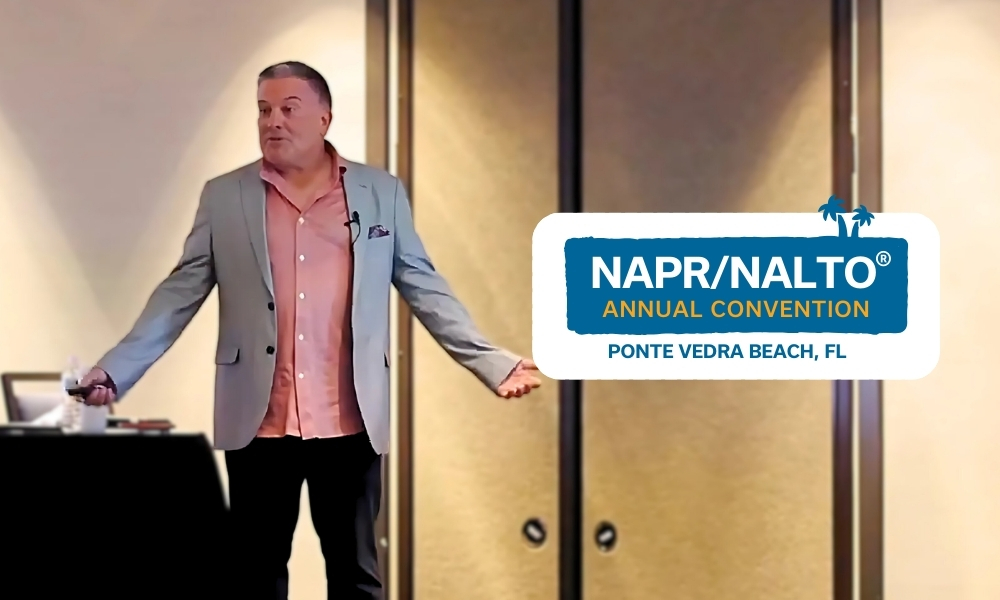First-hand accounts from locum tenens providers tasked with serving some of America’s most remote locations
Imagine practicing medicine where your daily commute means navigating snow-packed trails in a four-wheel drive. Instead of scrubs, you’re bundled up in Arctic-grade boots, insulated pants, and a Gore-Tex jacket. As you rumble along unmarked roads, the only “traffic” you see is a wandering moose or a family of brown bears trailing behind.
For locum tenens nurse practitioner Sarah Kelley and physician assistant Pete Davinson, that’s a typical day on assignment in remote regions of Alaska. On Nov. 7, the two joined Diann Pearson, a Wilderness Medical Staffing account executive, for a panel discussion during a webinar titled “Alaska Awaits: Your Future in Rural Emergency Medicine.”
For about an hour, the three spoke about the benefits and challenges of working as emergency medicine locum tenens providers in far-flung Alaska. They took questions from the webinar’s attendees and responded to the event’s moderator, Wilderness’ marketing director, Deanna Tiemann. Kelley and Davinson joined separately while on call at their respective facilities, ready to bolt at a moment’s notice to attend to patients in need.
What it Takes to Work Alone in a Remote Village
A solo provider site in remote Alaska is exactly what it sounds like. This offering from Wilderness is a specialized assignment that reaches isolated villages along the Bering Sea where Kelley and Davinson have worked on behalf of Tribal Health, an organization connecting underserved Indigenous communities to healthcare providers. In these remote locations, physicians and APPs handle everything from collecting blood samples to ordering supplies or driving the community’s designated “ambulance,” typically a converted four-wheel-drive truck or SUV.
 Pearson emphasized that these are some of the most remote assignments in the US, ranging from the far northern tip of Alaska to the southern base. She said, “If this is not for you, then [they] do have options that are a lot tamer.” Wilderness primarily books locum tenens assignments for providers in Alaska and Montana and has begun to place providers in other regions of the Northwest, including Washington, Idaho, and Colorado.
Pearson emphasized that these are some of the most remote assignments in the US, ranging from the far northern tip of Alaska to the southern base. She said, “If this is not for you, then [they] do have options that are a lot tamer.” Wilderness primarily books locum tenens assignments for providers in Alaska and Montana and has begun to place providers in other regions of the Northwest, including Washington, Idaho, and Colorado.
“The reason these facilities turn to us is that they need providers who can practice at a very high level,” Pearson said. “You need someone who is extremely competent in their skillset and has the ability to think on their feet.”
Both Kelley and Davinson are well-suited to this type of assignment. Davinson is a retired Army medic who worked in trauma surgery during two deployments to Iraq and Afghanistan. He also provided COVID-19 relief in New York City during the early years of the pandemic.
 Kelley, meanwhile, has more than 25 years of experience in high-acuity emergency room settings and has participated in multiple medical missions in Haiti, Guatemala, and Nicaragua.
Kelley, meanwhile, has more than 25 years of experience in high-acuity emergency room settings and has participated in multiple medical missions in Haiti, Guatemala, and Nicaragua.
For Kelley, this locum tenens job appealed to her sense of adventure.
“I have worked in ER rooms, as a flight nurse, or as an EMS for 25 years,” she said. “I loved my job, and I worked for a great hospital. I loved running around and having people screaming at me to come assist with a patient.”
But like many other providers, she turned to locums due to severe burnout. She also needed a mental break from her previous hospital’s new administration.
“It was really hard for me. I had colleagues who had become my best friends,” she said. “But I knew I wanted to leave, and then I started applying to different states. I got forwarded an email from Wilderness and responded to them, and that’s how I ended up coming here.
“Once I got to Alaska, I felt like I was finally able to breathe. That was when I realized that I had been so badly burnt out. This has been such a great place to be.”
“Once I got to Alaska, I felt like I was finally able to breathe. That was when I realized that I had been so badly burnt out. This has been such a great place to be.”
- Sarah Kelley, Nurse Practitioner
Addressing Healthcare Challenges in the Final Frontier
Rural Alaska’s healthcare obstacles aren’t entirely unique—they share many difficulties with remote areas across the US. However, extreme weather and the isolated nature of these sites make it tough to attract full-time providers, which is why facilities often turn to locum providers.
 While the setting might sound intimidating, Davinson explained that the work is no different from any other facility.
While the setting might sound intimidating, Davinson explained that the work is no different from any other facility.
“Patients are patients, no matter where they are treated,” Davinson said. “The one main difference is that in these communities, I’m on call 24/7. They know that, but they don’t abuse it.”
A significant difference about these facilities, though, is the patient volume. Kelley said she’ll see one to two patients a day, while Davinson may see that many in a week. But there are times when the extent of an injury or the level of care needed exceeds what either can provide.
“Most of the villages are not on the road system, which limits getting patients off the island,” Kelley said. “Once you have a patient you know you’re going to transfer, you arrange for a Medevac flight, and then they have to check the weather. Sometimes that means they won’t be coming out for hours or even days—and most of them won’t fly at night because these runways don’t have lights, so you have to call for the Coast Guard.”
“There have been times when I’ve been sitting with a patient for 20-plus hours before they could get there by helicopter,” she added.
Davinson stressed that while these situations are rare, they are part of what providers need to be prepared for in a solo assignment. He advised that providers should be honest with themselves before applying and fully understand the role’s demands.
“You have to be comfortable with being alone both in the clinic and in the housing,” he said. “You’ve got to be comfortable in your own skin and focus on honing your own skills in your free time. You also need to be comfortable knowing when an assignment is not for you.”
“You have to be comfortable with being alone both in the clinic and in the housing. You’ve got to be comfortable in your own skin and focus on honing your own skills in your free time. You also need to be comfortable knowing when an assignment is not for you.”
- Pete Davinson, Physician Assistant
Learning to Embrace the Wilderness
For many civilians living on the remote Aleutian islands, the only way to a larger city like Anchorage for medical care—such as surgery or to visit a specialist like an OB/GYN—is by boat or plane. That means the majority of medical care patients receive comes from the provider on assignment. This puts them in a unique position where they become essential role players in the community, whether they stay for a couple of weeks or several months.
“I’ve worked for five different Tribal Health organizations and seven villages, and I’ve been invited to carnivals, I’ve met with a village elder who is the last remaining person who knows the native language on the island—I even had one family invite me to their home for dinner where I got to meet the winners of a local dog sled competition,” Kelley shared. “I’ve been all over the place and seen so many different people, and everyone has been so awesome.”
Of course, working in such remote settings comes with its own obstacles. Sometimes, providers might struggle to find fresh produce and need to bring their own drinking water.
To endure in this environment, providers must be self-sufficient and comfortable alone. This truly unique but necessary role in medicine is not for the faint of heart, but Kelley and Davinson said it can be enriching. The rewards include recognition, love, and respect, the chance to participate in a once-in-a-lifetime opportunity, and, of course, all the advantages of working as a locum tenens provider.
“The most rewarding part of working in Alaska is the recognition we get,” Kelley said. “After 25 years of working in the ER, I never got feedback unless it was bad patient satisfaction scores. But now, as soon as I arrive and walk off the plane, I’m greeted by someone who is so excited to see me and have me there to help them. It’s very cool to be recognized and just have someone say thank you.”
Davinson echoed Kelley’s sentiments, saying that serving these communities more than makes up for any lack of creature comforts that an assignment in the lower 48 states might offer. And that’s what keeps them coming back.









